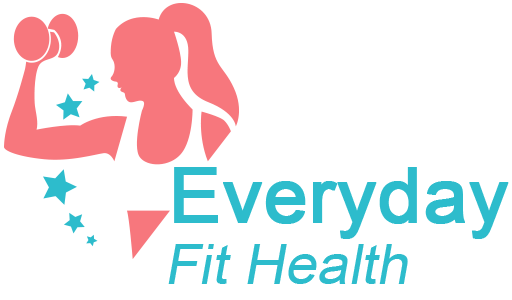1. Lean Proteins: Include lean sources of protein in every meal. Protein helps to increase satiety, preserve muscle mass, and support your metabolism. Good sources of lean protein include skinless poultry, lean cuts of meat, fish, eggs, tofu, tempeh, legumes (beans, lentils), and low-fat dairy products.
2. Whole Grains: Choose whole grains over refined grains. Whole grains are rich in fiber, which aids in digestion, keeps you feeling full, and helps regulate blood sugar levels. Opt for foods like brown rice, quinoa, whole wheat bread, whole grain pasta, oats, and barley.
3. Healthy Fats: Incorporate healthy fats into your diet, as they provide satiety and support overall health. Include sources like avocados, nuts, seeds, olive oil, and fatty fish (salmon, mackerel) which are high in omega-3 fatty acids.
4. Colorful Vegetables: Fill your plate with a variety of colorful vegetables. They are low in calories and high in nutrients, fiber, and antioxidants. Aim to have a variety of leafy greens, bell peppers, carrots, broccoli, cauliflower, tomatoes, and more.
5. Fresh Fruits: Include fresh fruits as snacks or desserts. They are a great source of vitamins, minerals, and fiber. Berries, apples, citrus fruits, and melons are excellent choices.
6. Portion Control: Watch your portion sizes. Even nutrient-dense foods can contribute to weight gain if consumed in excess. Use smaller plates and bowls to help control portion sizes.
7. Hydration: Drink plenty of water throughout the day. Sometimes, thirst can be mistaken for hunger. Drinking water before meals can also help control appetite.
8. Limit Added Sugars and Processed Foods: Minimize or eliminate foods and drinks high in added sugars, such as sugary snacks, sugary beverages, and processed foods. These can lead to rapid spikes and crashes in blood sugar levels and contribute to weight gain.
9. Mindful Eating: Practice mindful eating by paying attention to your hunger and fullness cues. Eat slowly, savoring each bite, and avoid distractions like screens while eating.
10. Meal Planning: Plan your meals and snacks ahead of time to avoid making unhealthy food choices when you’re hungry and rushed.
11. Regular Meals: Try to eat regular meals and snacks throughout the day to keep your metabolism stable and prevent extreme hunger.
12. Physical Activity: Remember that diet is just one part of the equation. Incorporate regular physical activity into your routine for overall health and enhanced weight loss.
13. Fiber-Rich Foods: Fiber is incredibly important for weight loss and overall health. It helps you feel full, slows down digestion, and supports gut health. In addition to whole grains, include high-fiber foods like beans, lentils, chickpeas, chia seeds, flaxseeds, and plenty of vegetables.
14. Nutrient Density: Focus on nutrient-dense foods that provide a lot of vitamins, minerals, and other beneficial compounds for relatively few calories. Vegetables, fruits, lean proteins, and whole grains are excellent examples of nutrient-dense choices.
15. Preparing Your Own Meals: Cooking at home allows you to have control over ingredients and cooking methods, which can lead to healthier meals. Experiment with herbs, spices, and healthier cooking techniques like grilling, baking, steaming, and sautéing instead of frying.
16. Balanced Snacking: Choose smart snacks that provide nutrients and keep you satisfied between meals. Pair protein-rich foods like yogurt or hummus with veggies, or have a small handful of nuts with a piece of fruit.
17. Adequate Protein Intake: Aim for an adequate intake of protein, especially if you’re physically active. Protein helps repair and build tissues, and it also requires more energy to digest, which can boost your metabolism.
18. Incorporate Variety: Eating a wide range of foods ensures that you get a diverse array of nutrients. This also prevents boredom and encourages you to stick to your diet plan.
19. Sleep and Stress Management: Prioritize getting enough sleep and managing stress. Lack of sleep and chronic stress can affect hormones that regulate hunger and appetite, potentially leading to weight gain.
20. Monitor Progress: Keep track of your meals, snacks, and physical activity. Tracking your progress can help you identify trends, successes, and areas where you might need to make adjustments.
21. Cheat Meals in Moderation: Occasional indulgences can help you stay motivated, but it’s important to approach “cheat meals” or treats in moderation. They shouldn’t derail your overall healthy eating pattern.
22. Gradual Changes: Rather than making drastic changes overnight, consider making gradual adjustments to your diet. This can make the transition more manageable and sustainable.
23. Long-Term Perspective: Remember that weight loss is a journey that requires patience and consistency. Aim for long-term changes in your eating habits that you can maintain beyond just reaching your goal weight.
24. Professional Guidance: If you’re unsure about how to structure your diet or have specific health concerns, consulting with a registered dietitian or nutritionist can provide personalized advice and support.












